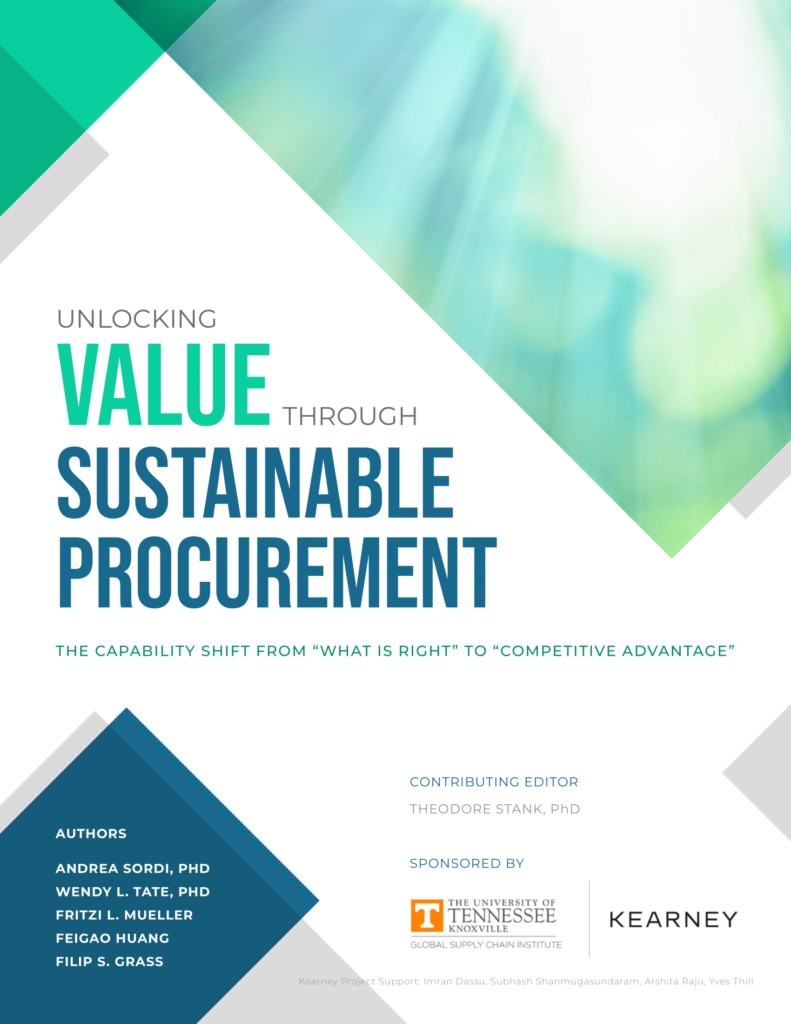A Framework for Sustainable Procurement and Supply Chain Management
Sustainable Procurement and Supply Chain Management: A 7-Pillar Framework
“Unlocking Value Through Sustainable Procurement”
The Capability Shift from What is Right to Competitive Advantage
A White Paper by the University of Tennessee Global Supply Chain Institute
More Information on this White Paper
What's Inside
Years ago, sustainability was considered the right thing to do. But nowadays, corporate sustainability, including sustainable procurement and supply chain management, has become a business necessity. Sustainable supply solutions provide high value. In addition to a competitive edge, sustainability, an appealing element of corporate culture, attracts talent, boosts innovation, and reduces regulatory compliance costs.
In 2020, the United Nations Global Compact report found supply chains represent the biggest challenge to achieving Sustainable Development Goals. So what is the key to corporate sustainability success? The answer: procurement.
This white paper focuses on sustainable procurement and supply chain management by explaining how procurement executives can become successful in-house sustainability catalysts while still driving and delivering on financial goals.
Inside you’ll find a framework of best practice capabilities that procurement organizations can adopt to advance their sustainability programs. The authors used information compiled from literature, extensive web-based research, and a combination of focus groups conducted with 14 companies, as well as individual interviews with supply chain professionals and C-suite representatives across various industries and geographies.
The result of their findings is the Seven Capability Pillars model, which serves as a sustainable procurement guide to help teams strengthen their capabilities and mature their sustainability focus from compliance to competency to value creation. Also included within the appendix is a useful self-assessment tool.
Who This is Primarily For: Corporate CEOs, Supply Chain Professionals, Procurement Executives, Chief Supply Chain Officers, Chief Procurement Officers, Supply Chain Leaders, and Supply Chain and Sustainability Students.
